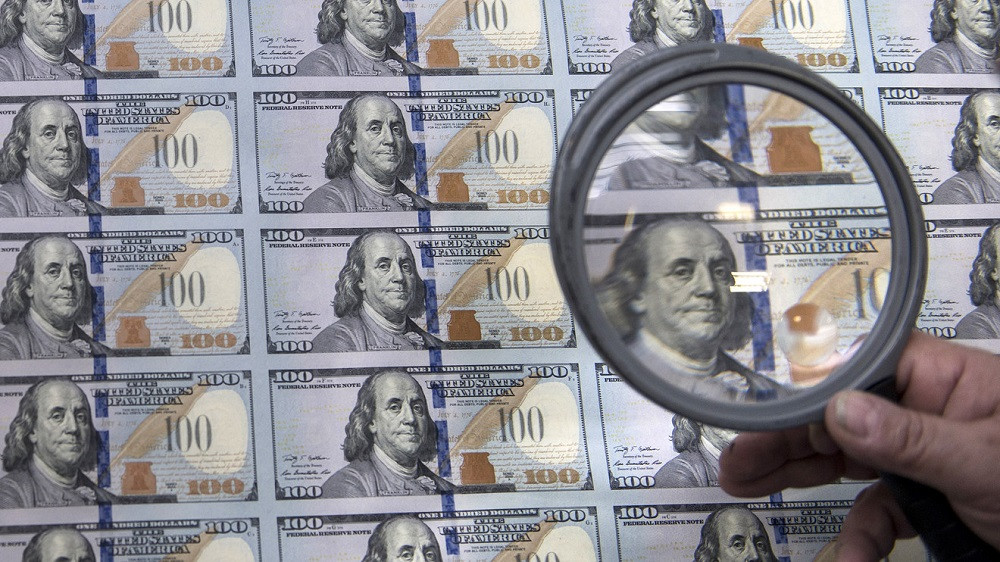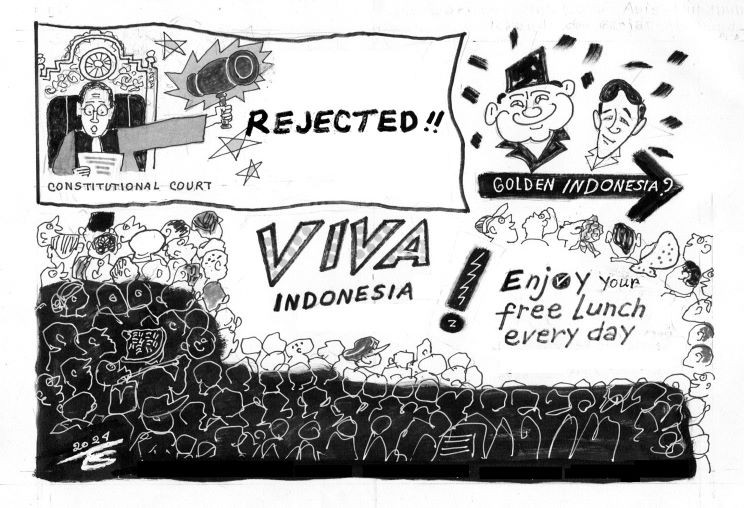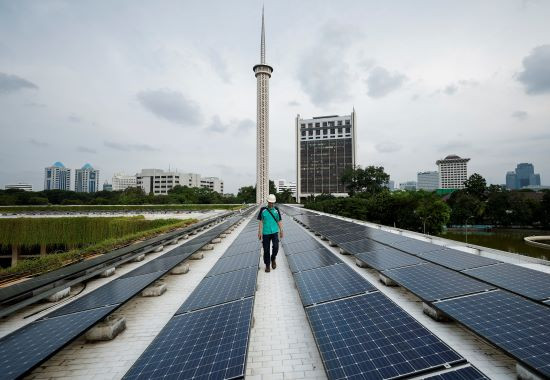Saudi-Qatari reconciliation could be a boon to Indonesia's SWF
Indonesia's policy to remain neutral in the Saudi Arabia-Qatar diplomatic conflict could prove beneficial to its newly established sovereign wealth fund (SWF), but only if it recruits professional and proven fund managers.
Change Size
 A stock illustration of US$100 banknotes. (AFP/Getty Images/Brendan Smialowski)
A stock illustration of US$100 banknotes. (AFP/Getty Images/Brendan Smialowski)
A
t the 41st Gulf Cooperation Council Summit on Jan. 5 in Al Ula, Saudi Arabia, the leaders of Saudi Arabia and Qatar agreed to end the enmity between the two countries that broke out in July 2017. The reconciliation was facilitated by Kuwait and the United States.
The reconciliation will affect not only the relationship between the two countries, but also their individual ties with other countries, including Indonesia. During the enmity between the two Gulf nations, it was relatively difficult for Indonesia to gain investments from either, partly because Indonesia refused to take sides.
As a result, neither Saudi Arabia nor Qatar considered Indonesia as a priority destination for n their outbound investment. But the end of the diplomatic conflict means that both countries can look on Indonesia as a friend.
Prior to the onset of the Saudi Arabia-Qatar conflict in July 2017, Indonesia had hoped that the historical visit of Saudi Arabian King Salman bin Abdul Azis Al Saud to Indonesia in March 2017 – the first visit of a Saudi king since King Faisal’s visit in 1970 – would trigger a significant increase in investments. However, Saudi Arabia’s investments in Indonesia have not increased significantly since the visit.
Saudi investment in Indonesia was US$5.4 million in 2019, only a slim increase from $5.36 million in the previous year. The two countries’ oil and gas giants, Saudi Aramco and Indonesian state-owned energy holding company Pertamina, even failed to reach an agreement on oil refinery development in Indonesia.
Likewise, the October 2017 visit of Qatari Emir Tamin bin Hamid Al Thani to Indonesia did not encourage Qatari investment in Indonesia, with the miserable failure of Qatar’s plans to invest $500 million in Indonesian tourist destinations.
Just before the Saudi-Qatari reconciliation, President Joko Widodo issued on Dec. 15, 2020 three Government Regulations on the establishment of Indonesia’s sovereign wealth fund (SWF), the Indonesia Investment Authority (INA), which is to begin operating in the near future.
To kick-start the fund, the INA will put an initial $5 billion in cash and stocks in state-owned enterprises (SOEs). The INA has a special authority to represent the sovereign Indonesian government.
With the INA’s establishment, Indonesia could take advantage of the Saudi-Qatari reconciliation to obtain investment funds from these two countries, particularly from their SWFs: the Public Investment Fund (PIF) of Saudi Arabia and the Qatar Investment Authority (QIA).
The PIF, which manages $320 billion in funds, has invested $713.7 million in US aircraft manufacturer Boeing, entertainment conglomerate Disney ($495.8 million), investment bank Citigroup ($521.9 million), the Bank of America ($522 million), Marriott International ($513 million) and Facebook ($521.9 million). It has also invested $1.5 billion in India’s Joi Platforms, South Korea’s Posco Engineering & Construction Co. and several other foreign companies.
Meanwhile, the QIA, which managed $335 billion in 2017, has also invested in various countries, including $5 billion in 1Malaysia Development Berhad, as well as in China and the United Kingdom.
As a sovereign wealth fund, the INA has advantages in persuading the PIF and the QIA cooperation in investing in Indonesia’s electricity, toll road and health sectors. However, the Gulf states’ SWFs will be drawn to join the INA’s investments only if it has a professional team of investment fund managers with solid track records in managing funds that have produced high returns.
***
The writer is a senior diplomat at the Policy Analysis and Development Agency of the Indonesian Foreign Ministry. The views presented here are personal.








